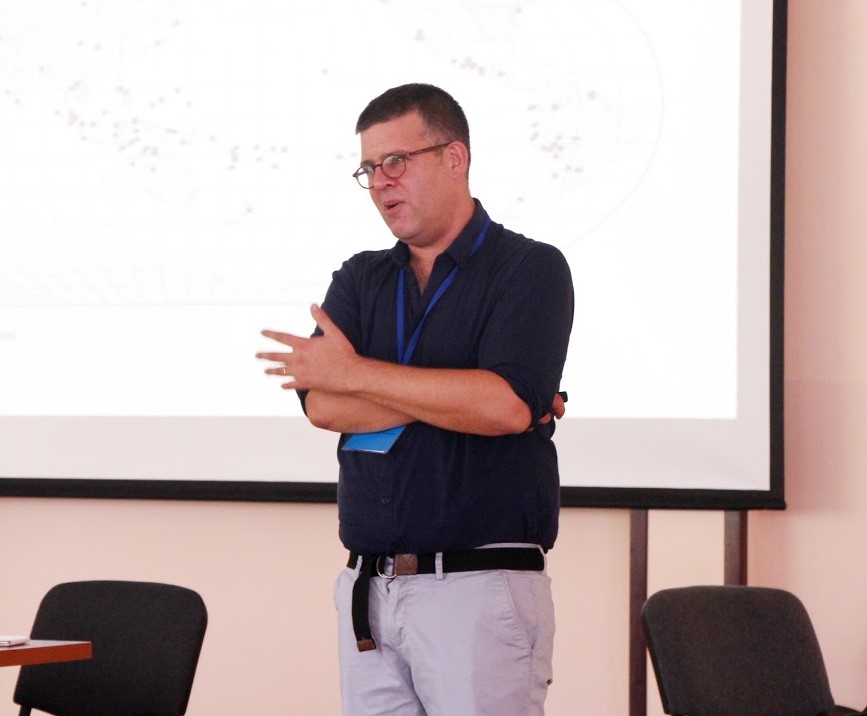- A
- A
- A
- ABC
- ABC
- ABC
- А
- А
- А
- А
- А
- HSE University
- Faculties
- Faculty of Humanities
- School of Linguistics
- News
- 'HSE students are among the very best linguistics students in the world'
The School of Linguistics was founded in December 2014. Today, the School offers undergraduate and graduate programs in theoretical and computational linguistics. Linguistics as it is taught and researched at the School does not simply involve mastering foreign languages. Rather, it is the science of language and the methods of its modeling. Research groups in the School of Linguistics study typology, socio-linguistics and areal linguistics, corpus linguistics and lexicography, ancient languages and the history of languages. The School is also developing linguistic technologies and electronic resources: corpora, training simulators, dictionaries, thesauruses, and tools for digital storage and processing of written texts.
Digital Humanities
Bangkok: Association for Computational Linguistics, 2024.
Bursov K., Slioussar N.
Discourse Processes. 2025. Vol. 62. No. 3. P. 155-176.
In bk.: BivalTyp: Typological database of bivalent verbs and their encoding frames. .
arxiv.org. Computer Science. Cornell University, 2024

'HSE students are among the very best linguistics students in the world'

What was the most exciting and impressive for you in the TyLex summer school?
For me the most exciting and impressive part of TyLex would have to be meeting the upcoming generation of young typologists and descriptive linguists. I also enjoyed meeting old friends and meeting new ones.
How do you find Voronovo campus?
The Voronovo campus was really ideal for the summer school. It was perfectly designed to help create a feeling a community between the students and the teachers, so we could enjoy the classes but also relaxed conversations around the clock. Incidentally, some of these conversations went until the very small hours of the night!
What do you think about cultural program?
The cultural program was great. I especially enjoyed the klezmer band, but I also loved watching everyone dance in the evenings.
What could you say about HSE students?
I think it is no longer a secret that HSE students are among the very best linguistics students in the world. I can't say enough good things about them. First of all, their training is excellent, thanks to the very hard work of Ekaterina Rakhilina and the rest of the HSE teachers. I especially admire the openmindedness and desire to expose students to all theoretical approaches, and of course, the 'expedition' tradition is one of the very strong points of the program. I wish every linguistics program had such a commitment to fieldwork from the very beginning.
I am always amazed to discuss linguistics with HSE students: they are very knowledgeable and smart, but they also know how to ask excellent questions and hold a very spirited argument, while remaining polite and respectful!
How do you find Moscow?
I love Moscow. The first time I was there was for the Winter School organized by the HSE, and I came with several students of mine: Rammie Cahlon, Haim Dubossarsky, and Maya Inbar. Since the Winter School program began around noon each day, we had plenty of time to explore the city and to discover its charms. From museums and galleries to restaurants and bars, from parks to escape rooms, from long meandering walks to metro trips, we really got to see quite a bit of the city, but I am sure we didn't begin to even scratch the surface.
- About
- About
- Key Figures & Facts
- Sustainability at HSE University
- Faculties & Departments
- International Partnerships
- Faculty & Staff
- HSE Buildings
- HSE University for Persons with Disabilities
- Public Enquiries
- Studies
- Admissions
- Programme Catalogue
- Undergraduate
- Graduate
- Exchange Programmes
- Summer Schools
- Semester in Moscow
- Business Internship
- © HSE University 1993–2025 Contacts Copyright Privacy Policy Site Map
- Edit

